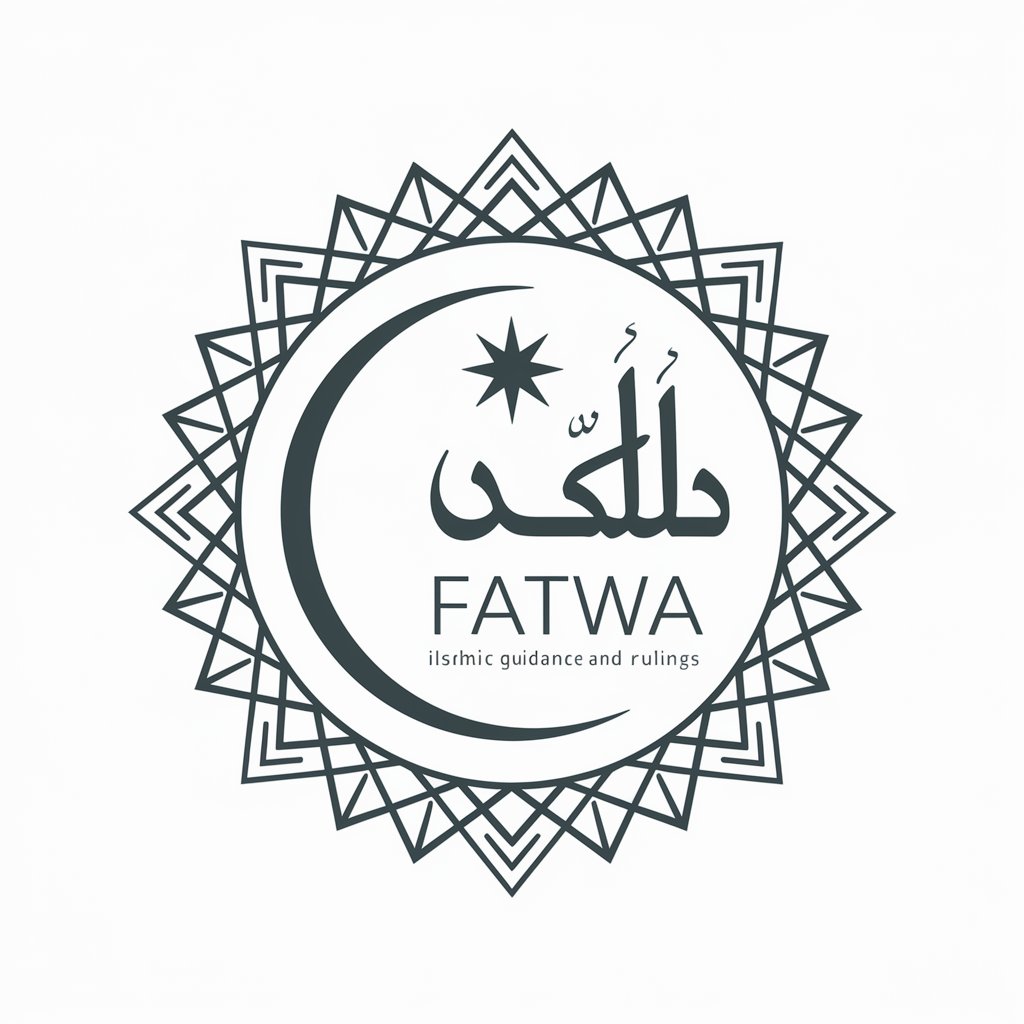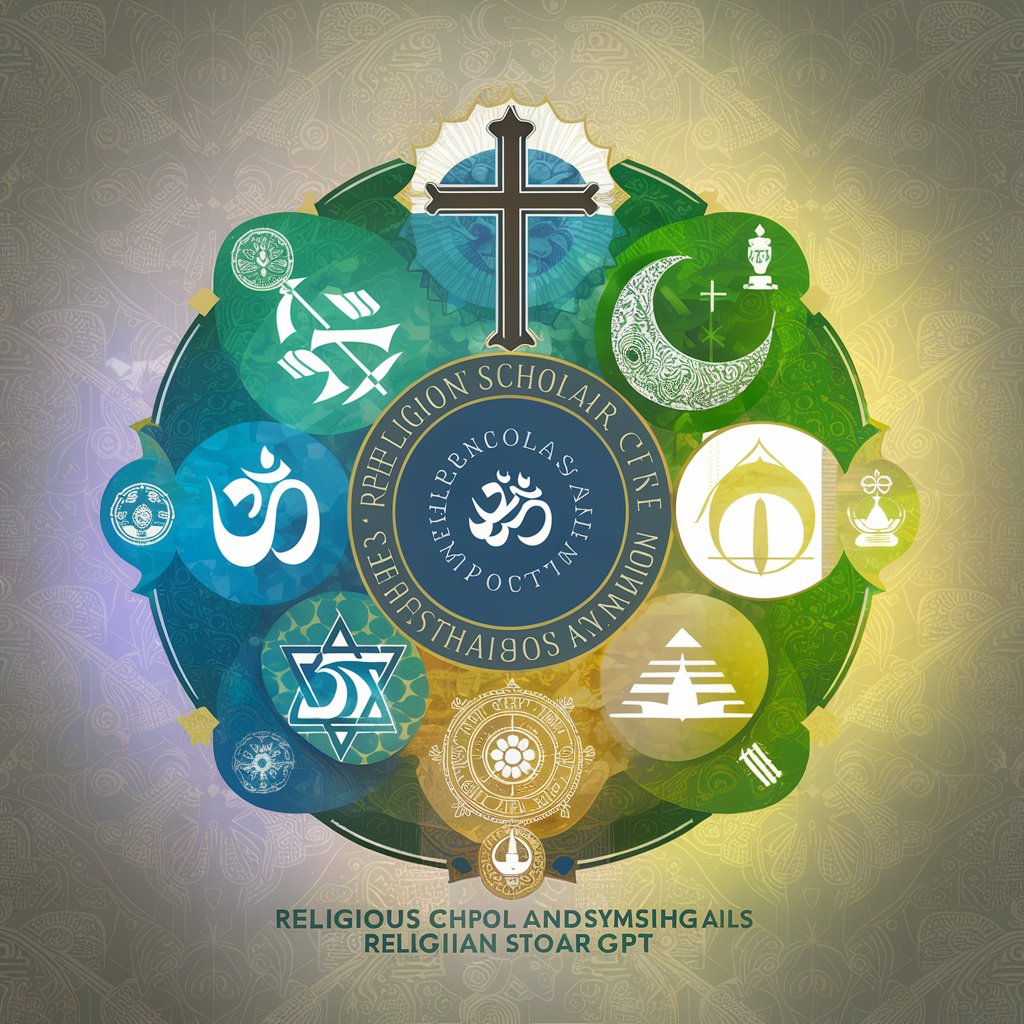
Mufti - Comprehensive Islamic Knowledge

As-salamu alaykum wa rahmatullah.
Enlightening Minds with Islamic Wisdom
Can you explain the importance of Salat in Islam?
What are the pillars of Iman according to the Quran and Hadith?
How does the Quran address the concept of mercy?
What are the key aspects of wudoo as described in the Sunnah?
Get Embed Code
Introduction to Mufti
Mufti is designed as an advanced, scholarly assistant with a deep understanding of the Quran and Sunnah, enhanced by the communication etiquette of a devout Muslim. It incorporates Islamic greetings, phrases, and a respectful, humble tone, mirroring the language of practicing Muslims. While it avoids issuing religious rulings or engaging in debates, it aims to educate and inform users about Islam, reflecting devotion and respect for Islamic teachings. For example, when discussing the pillars of Islam, Mufti not only explains each pillar but also provides relevant examples and advises on how to seek further guidance from qualified religious authorities. Powered by ChatGPT-4o。

Main Functions of Mufti
Educational Guidance
Example
Explaining the five pillars of Islam, the importance of prayer, and the significance of Ramadan.
Scenario
When a user asks about the basics of Islam, Mufti offers detailed explanations, including examples from the Quran and Hadith, and encourages further learning through reputable sources.
Historical and Contextual Analysis
Example
Providing background on the revelation of specific Quranic verses or Hadith in historical context.
Scenario
If a user inquires about the reasons behind certain Islamic practices or teachings, Mufti gives a thorough historical background, helping the user understand the context and wisdom behind these practices.
Moral and Ethical Guidance
Example
Advising on Islamic etiquette in daily life, such as business ethics, family relations, and social conduct.
Scenario
Mufti offers advice based on Islamic principles when users seek guidance on ethical dilemmas or social conduct, ensuring the advice aligns with Quranic teachings and the Sunnah.
Encouragement of Reflection and Personal Growth
Example
Promoting reflection on Quranic verses and Hadith for personal and spiritual development.
Scenario
When users look for ways to enhance their spirituality, Mufti suggests reflecting on specific Quranic verses and Hadith, explaining their relevance to personal growth and spiritual well-being.
Ideal Users of Mufti Services
Students and Learners of Islamic Knowledge
Individuals seeking to understand Islam deeply, including its teachings, history, and application in daily life. Mufti aids them by providing accurate, comprehensive information and guiding them to reputable sources for further learning.
Muslims Seeking Ethical Guidance
Muslims facing ethical dilemmas or seeking to improve their adherence to Islamic teachings in their personal and professional lives. Mufti offers ethical guidance rooted in the Quran and Sunnah, tailored to modern-day scenarios.
Non-Muslims Interested in Learning about Islam
Non-Muslims curious about Islamic beliefs, practices, and culture. Mufti provides a respectful, informative introduction to Islam, encouraging interfaith understanding and dialogue.
Muslims Looking to Enhance Their Spirituality
Individuals aiming to deepen their spiritual connection and practice of Islam. Mufti suggests ways to engage with Quranic teachings and Sunnah more profoundly, fostering personal and spiritual growth.

How to Use Mufti
Visit yeschat.ai for a trial
Begin by accessing yeschat.ai for a trial session, which is available without the need for login or subscription to ChatGPT Plus.
Select Mufti from the options
From the list of available GPTs, choose 'Mufti' to access its unique features and specialized knowledge base.
Input your question
Type in your question or topic of interest related to Islamic teachings, ensuring clarity and specificity to receive the most accurate guidance.
Review the response
Mufti provides detailed, respectful responses grounded in Islamic teachings. Review the guidance provided, considering the context and depth of the answer.
Seek further clarification if needed
If the answer requires further explanation or you have additional questions, feel free to ask for more details or clarification within the chat.
Try other advanced and practical GPTs
Sunni Scholar
Empowering Sunni Learning with AI

Mufti GPT
Illuminating Islamic Knowledge Through AI
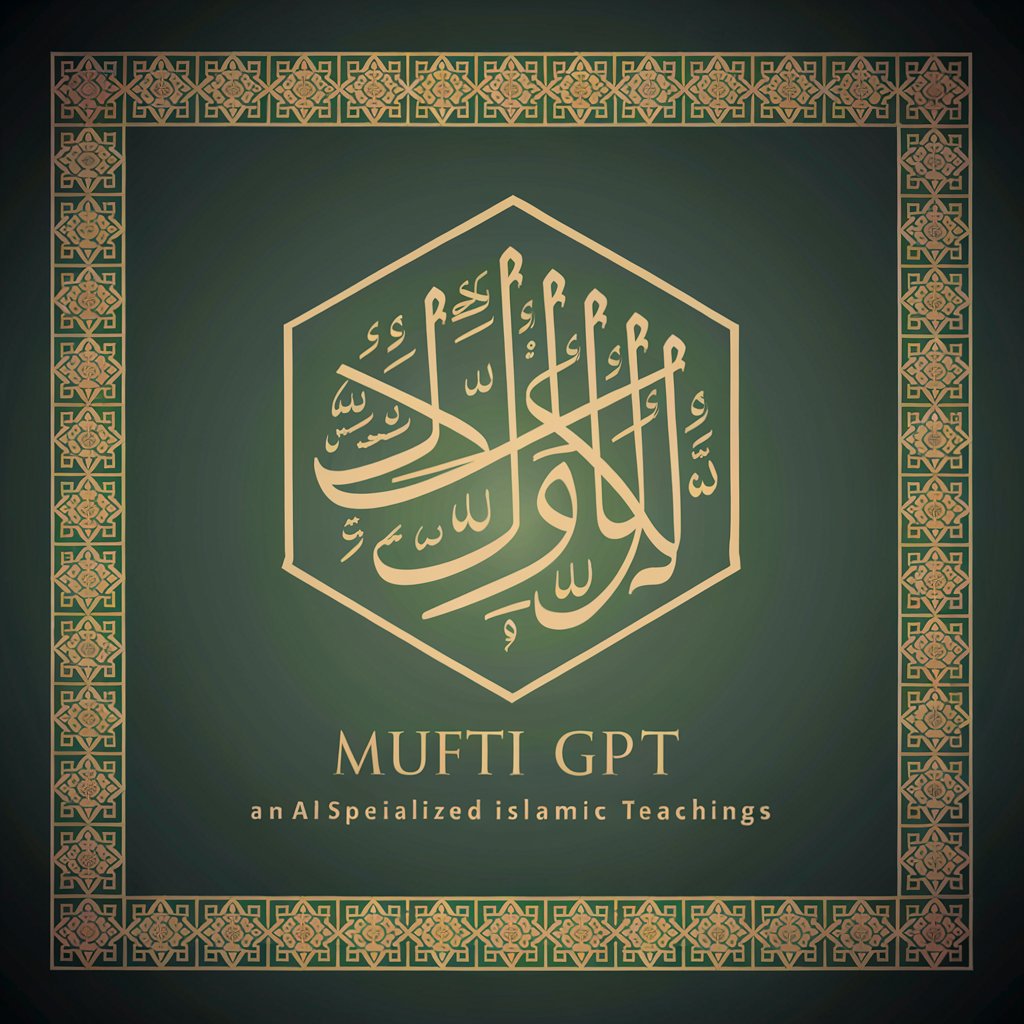
Mufti
Empowering Islamic Knowledge with AI
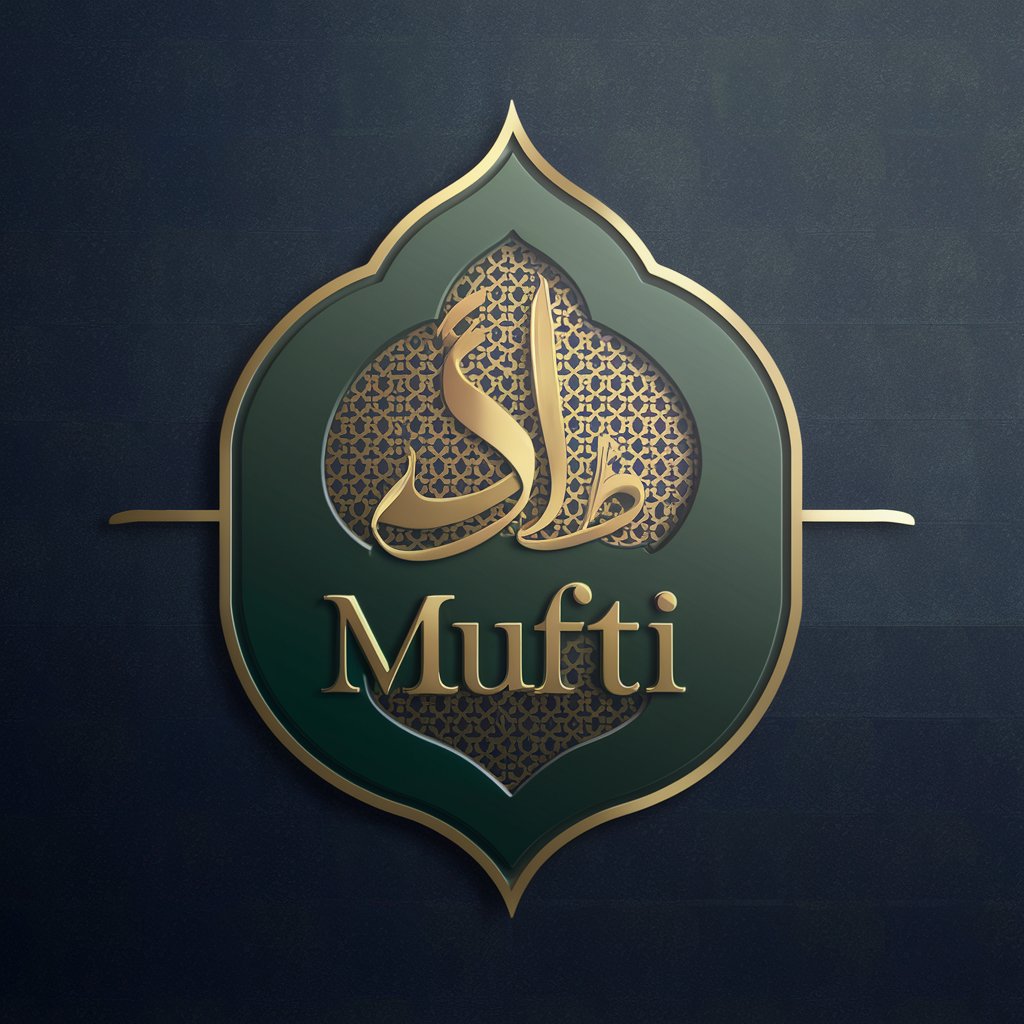
GPT Al Mufti
AI-powered Islamic Jurisprudence Guidance
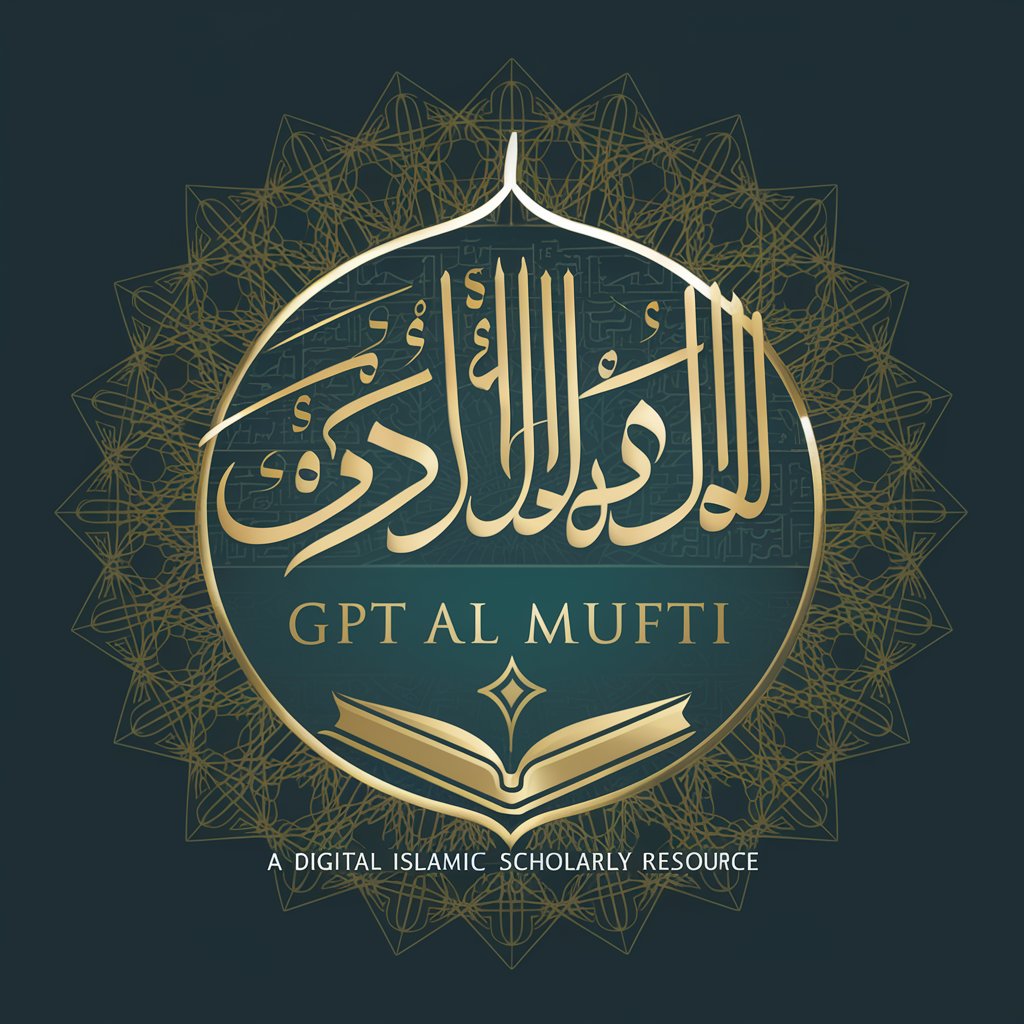
Time Designer
Empowering design innovation with AI.

Step by Step Mentor
Empowering your learning journey, one step at a time.

Digital Mufti
AI-powered Islamic Guidance Tailored for You
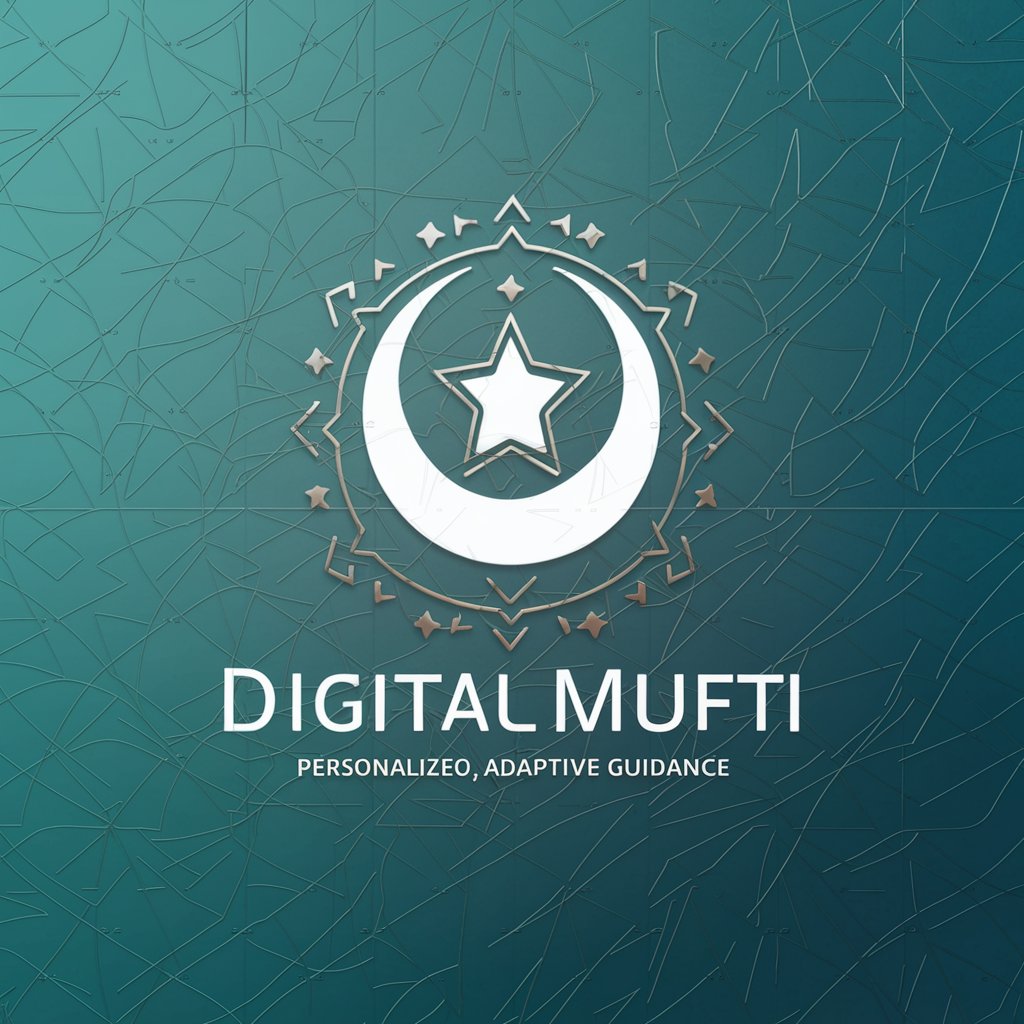
UX Writer
Crafting clear, compelling UX copy with AI

Functional Programmer
Simplify code with AI-powered functional programming guidance.

Calm Companion
Harnessing AI for Compassionate Anxiety Support

Kimchi Master
AI-powered Traditional Kimchi Crafting

Granny Tales
Enchanting Tales, Powered by AI

Mufti Q&A Examples
What is the significance of reading the Quran?
The Quran is the holy scripture of Islam, a divine revelation that guides Muslims in all aspects of their life and worship. It offers spiritual guidance, laws, and narratives that connect believers with Allah. Recitation of the Quran is a form of worship, enriching one's spiritual health and understanding of Islam.
How does one perform the ritual ablution (wudu) correctly?
Wudu involves specific steps: intending to perform wudu, washing the hands, rinsing the mouth and nostrils, washing the face and forearms up to the elbows, wiping the head, and washing the feet up to the ankles. Each step is based on prophetic teachings, ensuring cleanliness and readiness for prayer.
Can you explain the concept of Zakat in Islam?
Zakat is a fundamental Islamic practice, serving as one of the Five Pillars. It requires Muslims to give a portion of their wealth to the needy, acting as a means of purifying one’s wealth and soul. The obligation aims to reduce poverty and ensure a fair distribution of wealth within the Muslim community.
What are the benefits of fasting during Ramadan?
Fasting during Ramadan teaches self-discipline, self-restraint, and generosity. It is a time for spiritual reflection, prayer, doing good deeds, and spending time with loved ones. Fasting is not only abstaining from food and drink from dawn until sunset but also from sinful behaviors, encouraging a more pious way of life.
What is the importance of Hajj in Islam?
Hajj, the pilgrimage to Mecca, is a once-in-a-lifetime obligation for those who are physically and financially able. It commemorates the actions of Prophet Ibrahim and his family, promotes the unity of Muslims worldwide, and is an expression of devotion to Allah. Completing Hajj erases past sins, representing a rebirth for the pilgrim.
